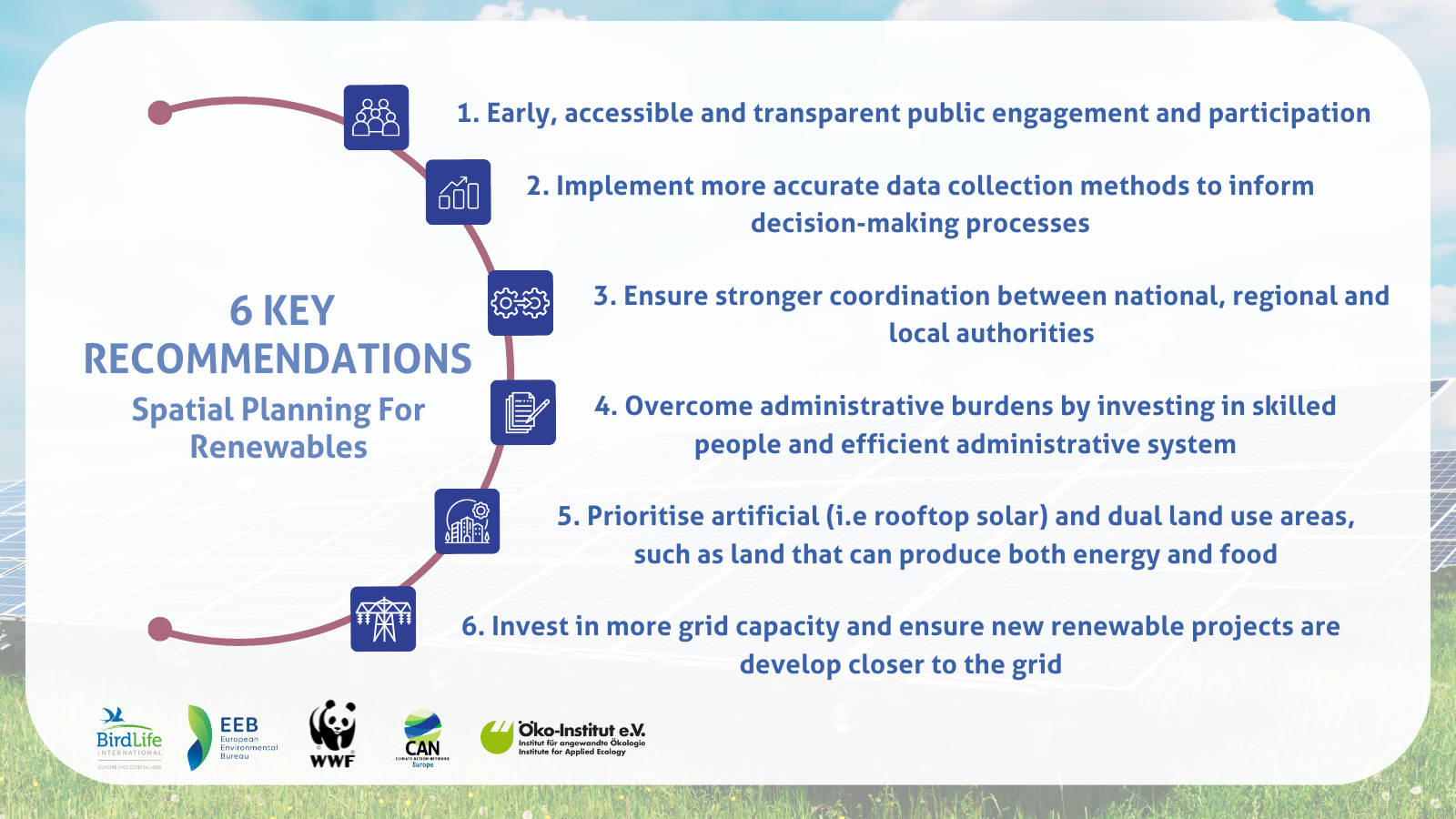
In line with the publication of the European Commission’s Guidance on designating renewables acceleration areas, the Oeko Institute, CAN Europe, WWF EU, Birdlife Europe and the European Environmental Bureau have published their joint analysis and recommendations regarding the renewable energy spatial planning and designation of Renewable Acceleration Areas (RAAs). These analysis and recommendations emphasise the need for early public participation in spatial planning processes, prioritising artificial and dual land use areas for renewable energy development, addressing country-specific shortcomings and promoting coordination between national, regional and local spatial planning frameworks.

These recommendations were derived from analysis conducted by environmental and nature NGOs across the EU on Member States’ spatial planning and mapping processes for renewables development. In particular, six countries (Estonia, Germany, Greece, Spain, Poland and Portugal) were examined closely in regards to their designation of RAAs, their environmental sensitivity mapping and public participation processes. Overall, despite showing more ambition for renewable energy deployment, most of the countries were ill-prepared in regards to the designation of RAAs and sensitivity mapping for RES deployment, except for Portugal which is a front runner in the mapping of renewable acceleration areas despite challenges including administrative resources and public participation. For public participation, only Estonia and Germany have inclusive public participation well integrated into their spatial planning processes.



